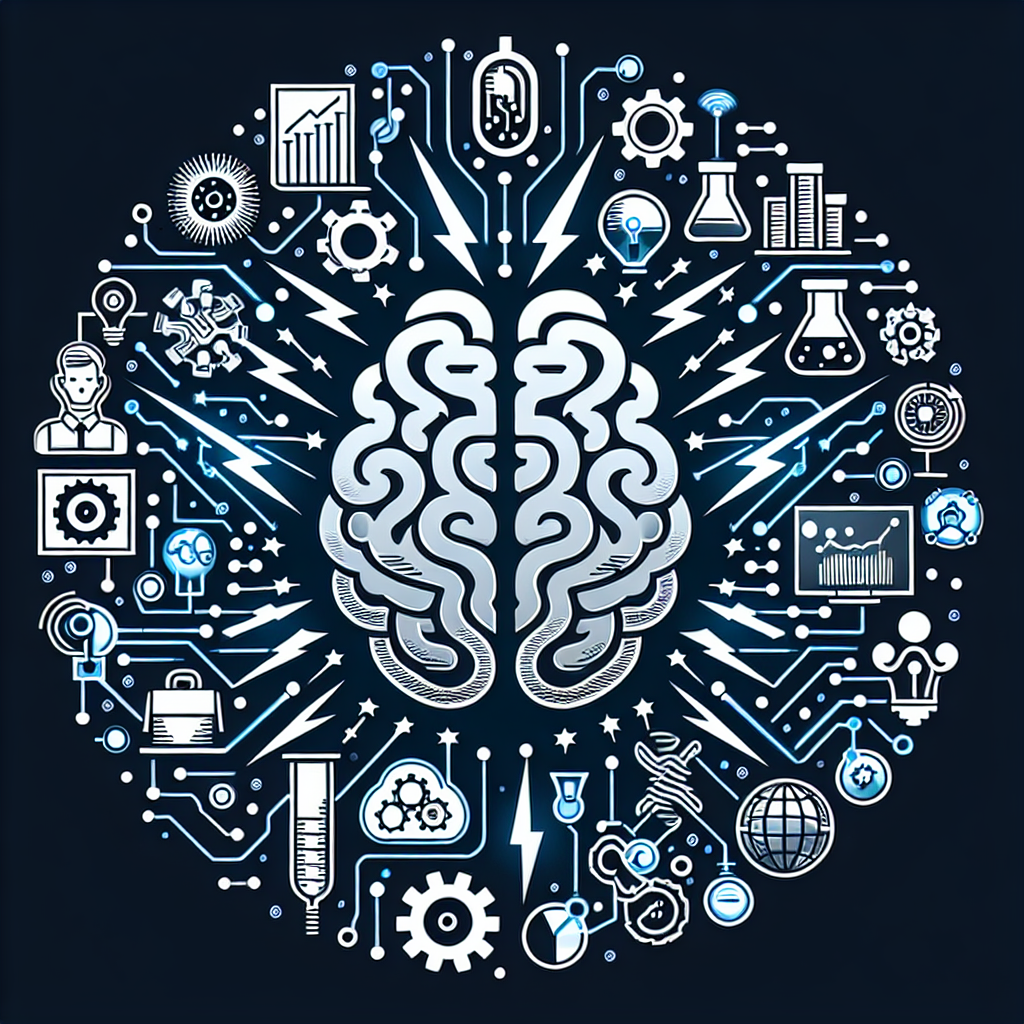Unleashing the Power of AGI: How This Technology is Revolutionizing Industries
Artificial General Intelligence (AGI) is a cutting-edge technology that has the power to revolutionize industries across the globe. AGI refers to a type of artificial intelligence that is capable of performing any intellectual task that a human being can do. This includes reasoning, problem-solving, learning, and even understanding natural language. AGI has the potential to transform the way we work, live, and interact with technology. In this article, we will explore how AGI is revolutionizing industries and changing the way we approach various tasks and challenges.
What is AGI?
AGI is a form of artificial intelligence that is designed to mimic human intelligence. Unlike other forms of AI, such as narrow AI or machine learning, AGI is not limited to specific tasks or domains. Instead, AGI is capable of performing a wide range of intellectual tasks and adapting to new situations and challenges. This makes AGI a powerful tool for solving complex problems and driving innovation in a variety of industries.
AGI is often compared to human intelligence, as it is designed to think, learn, and reason like a human. However, AGI has the advantage of being able to process and analyze vast amounts of data at speeds that are far beyond human capabilities. This allows AGI to quickly identify patterns, make predictions, and generate insights that can be used to drive decision-making and create new opportunities for growth and development.
How is AGI revolutionizing industries?
AGI is revolutionizing industries in a variety of ways, by providing new opportunities for innovation, efficiency, and growth. Here are some of the ways that AGI is transforming different industries:
1. Healthcare: AGI is revolutionizing the healthcare industry by providing new tools and technologies for diagnosing and treating diseases. AGI can analyze medical images, genetic data, and patient records to identify patterns and make predictions about disease progression and treatment outcomes. This allows healthcare providers to deliver more personalized and effective care to their patients.
2. Finance: AGI is transforming the finance industry by providing new tools for analyzing market data, predicting trends, and making investment decisions. AGI can process vast amounts of financial data to identify patterns and opportunities for growth, allowing investors to make more informed decisions and maximize their returns.
3. Manufacturing: AGI is revolutionizing the manufacturing industry by providing new tools for optimizing production processes, reducing costs, and increasing efficiency. AGI can analyze data from sensors and other sources to identify bottlenecks, predict maintenance needs, and optimize production schedules. This allows manufacturers to improve their operations and deliver products more quickly and cost-effectively.
4. Transportation: AGI is transforming the transportation industry by providing new tools for optimizing routes, improving safety, and reducing emissions. AGI can analyze data from sensors, cameras, and other sources to identify traffic patterns, predict accidents, and optimize routing decisions. This allows transportation companies to improve their services and reduce their environmental impact.
5. Retail: AGI is revolutionizing the retail industry by providing new tools for analyzing customer data, predicting trends, and personalizing marketing campaigns. AGI can analyze data from online and offline sources to identify customer preferences, predict buying behavior, and recommend products and services. This allows retailers to deliver more personalized and targeted marketing campaigns and increase their sales and customer loyalty.
FAQs:
Q: How is AGI different from other forms of artificial intelligence?
A: AGI is different from other forms of artificial intelligence, such as narrow AI or machine learning, because it is capable of performing a wide range of intellectual tasks and adapting to new situations and challenges. AGI is designed to mimic human intelligence, allowing it to think, learn, and reason like a human.
Q: What are the potential risks of AGI?
A: While AGI has the potential to revolutionize industries and drive innovation, it also poses potential risks, such as job displacement, ethical concerns, and security risks. It is important for organizations to carefully consider these risks and develop strategies for mitigating them.
Q: How can organizations leverage AGI to drive innovation?
A: Organizations can leverage AGI to drive innovation by investing in research and development, building partnerships with technology providers, and training their employees to use AGI tools and technologies. By embracing AGI, organizations can unlock new opportunities for growth and development.
In conclusion, AGI is a powerful technology that has the potential to revolutionize industries and drive innovation across the globe. By leveraging AGI to analyze data, make predictions, and generate insights, organizations can improve their operations, deliver more personalized services, and create new opportunities for growth and development. As AGI continues to evolve and mature, it will be exciting to see how this technology transforms industries and changes the way we work, live, and interact with technology.

